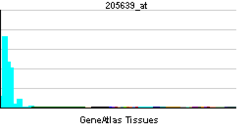AOAH
| AOAH | |||||||||||||||||
|---|---|---|---|---|---|---|---|---|---|---|---|---|---|---|---|---|---|
| Identifiers | |||||||||||||||||
| Aliases | AOAH | ||||||||||||||||
| External IDs | MGI: 1350928 HomoloGene: 1238 GeneCards: AOAH | ||||||||||||||||
| Genetically Related Diseases | |||||||||||||||||
| human immunodeficiency virus infectious disease[1] | |||||||||||||||||
| |||||||||||||||||
| RNA expression pattern | |||||||||||||||||
 | |||||||||||||||||
| More reference expression data | |||||||||||||||||
| Orthologs | |||||||||||||||||
| Species | Human | Mouse | |||||||||||||||
| Entrez | |||||||||||||||||
| Ensembl | |||||||||||||||||
| UniProt | |||||||||||||||||
| RefSeq (mRNA) | |||||||||||||||||
| RefSeq (protein) | |||||||||||||||||
| Location (UCSC) | Chr 7: 36.51 – 36.72 Mb | Chr 13: 20.79 – 21.02 Mb | |||||||||||||||
| PubMed search | [2] | [3] | |||||||||||||||
| Wikidata | |||||||||||||||||
| View/Edit Human | View/Edit Mouse |
Acyloxyacyl hydrolase, also known as AOAH, is a protein which in humans is encoded by the AOAH gene.
Function
Acyloxyacyl hydrolase (AOAH) is a 2-subunit lipase which selectively hydrolyzes the secondary (acyloxyacyl-linked) fatty acyl chains from the lipid A region of bacterial lipopolysaccharides (LPSs, also called endotoxins). This action inactivates LPSs that are sensed by MD-2--Toll-like Receptor 4 (TLR 4) on animal cells (and probably also by the cytosolic caspase-based sensors). The enzyme's 2 disulfide-linked subunits are encoded by a single mRNA. The smaller subunit is a member of the saposin-like (SAPLIP) proteins and the larger subunit, which contains the active site serine,is a GDSL lipase.
AOAH is produced by neutrophils, macrophages (including Kupffer cells and microglia), dendritic cells, NK cells and renal proximal tubule cells. Absence of the enzyme in genetically engineered mice has been associated with distinctive phenotypes. AOAH-deficient animals are unable to inactivate even small amounts of LPS in tissues; it remains bioactive and may pass from cell to cell in vivo for many weeks. The LPS-exposed mice develop strikingly high titers of polyclonal antibodies, prolonged hepatomegaly, and innate immune "tolerance" that gives them slow and inadequate responses to bacterial challenge.
AOAH has been highly conserved through evolution; the amino acid sequence of the human enzyme is almost 50% identical to that of the AOAH found in Dictyostelium discoideum, with 100% identity in the GDSL lipase consensus sequences. The enzyme has been found in many invertebrates and all vertebrates studied to date except fish. Although it seems likely that the enzyme has substrates in vivo other than LPS (it can be a phospholipase A1/B and acyl transferase in vitro), none has been identified.
A polymorphism in the gene has been associated with chronic rhinosinusitis in 2 different ethnic groups. Other studies have found that AOAH mRNA abundance is linked to HLA-DR alleles that, in turn, have been associated strongly with colitis.
References
- Hagen FS, Grant FJ, Kuijper JL, et al. (1991). "Expression and characterization of recombinant human acyloxyacyl hydrolase, a leukocyte enzyme that deacylates bacterial lipopolysaccharides". Biochemistry. 30 (34): 8415–23. doi:10.1021/bi00098a020. PMID 1883828.
- Staab JF, Ginkel DL, Rosenberg GB, Munford RS (1994). "A saposin-like domain influences the intracellular localization, stability, and catalytic activity of human acyloxyacyl hydrolase". J. Biol. Chem. 269 (38): 23736–42. PMID 8089145.
- Hall CL, Munford RS (1983). "Enzymatic deacylation of the lipid A moiety of Salmonella typhimurium lipopolysaccharides by human neutrophils". PNAS. 80 (21): 6671–6675. doi:10.1073/pnas.80.21.6671. PMC 391232
 . PMID 6356132.
. PMID 6356132. - Coulthard MG, Swindle J, Munford RS, et al. (1996). "Adenovirus-mediated transfer of a gene encoding acyloxyacyl hydrolase (AOAH) into mice increases tissue and plasma AOAH activity". Infect. Immun. 64 (5): 1510–5. PMC 173955
 . PMID 8613354.
. PMID 8613354. - Lu M, Zhang M, Takashima A, Munford RS, et al. (2005). "Lipopolysaccharide deacylation by an endogenous lipase controls innate antibody responses to Gram-negative bacteria". Nat. Immunol. 6: 989–994. doi:10.1038/ni1246. PMID 16155573.
- Shao B, Kitchens RL, Munford RS, et al. (2011). "Prolonged hepatomegaly in mice that cannot inactivate bacterial endotoxin". Hepatology. 54: 1051–1062. doi:10.1002/hep.24488. PMID 21674560.
- Zhang Y, Endam LM, Filali-Mouhim A, Desrosiers M, et al. (2012). "Polymorphisms in RYBP and AOAH genes are associated with chronic rhinosinusitis in a Chinese population: a replication study". PLOS ONE. 7: e39247. doi:10.1371/journal.pone.0039247. PMID 22723975.
- Fairfax BP, Makino S, Radhakrishnan J, Knight JC, et al. (2012). "Genetics of gene expression in primary immune cells identifies cell type-specific master regulators and roles of HLA alleles". Nat. Genet. 44: 502–510. doi:10.1038/ng.2205. PMID 22446964.
- Lu M; Varley AW; Ohta S; Hardwick J; Munford RS (2008). "Host inactivation of bacterial lipopolysaccharide prevents prolonged tolerance following gram-negative bacterial infection". Cell Host Microbe. 4: 293–302. doi:10.1016/j.chom.2008.06.009. PMID 18779055.
- Lu M, Varley AW, Munford RS (2013). "Persistently active microbial molecules prolong innate immune tolerance in vivo". PLOS Pathogens. 9: e1003339. doi:10.1371/journal.ppat.1003339. PMID 23675296.
- ↑ "Diseases that are genetically associated with AOAH view/edit references on wikidata".
- ↑ "Human PubMed Reference:".
- ↑ "Mouse PubMed Reference:".